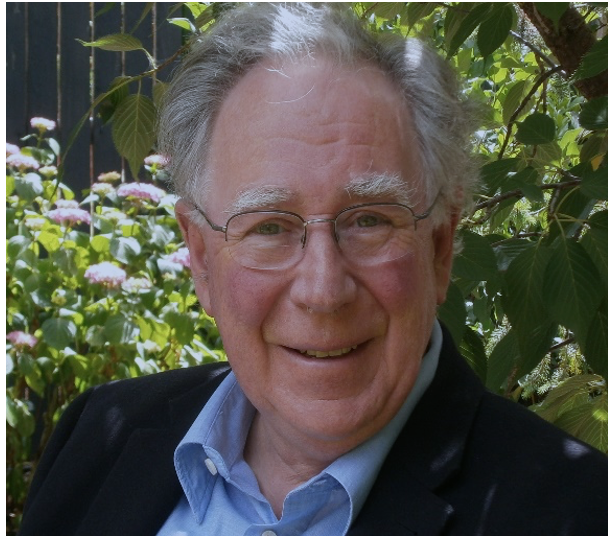PAUL COLLINS. Sniffing the Ecclesiastical Wind
August 23, 2016
There’s one thing you have to concede to Archbishop Mark Coleridge of Brisbane: he can unerringly sniff the direction of the wind in the Vatican; mind you, he’s a frequent visitor to Rome. He’s spotted that Pope Francis is big on synods or gatherings of bishops, clergy and laity to set policy for the church, so he told his diocesan newspaper, the Catholic Leader (17 August 2016) that he’s persuaded the Australian Catholic Bishops Conference to hold a national synod of the Australian Catholic Church in 2020.
Unlike the Anglican and Protestant churches, Australian Catholicism is not big on synods. The last one was in 1937 and the three before that (1885, 1895 and 1905) were only attended by bishops, senior priests and theologians. The present bishops are not really enthusiastic about a synod either. The danger is you get people together and you never know what might come-up.
Coleridge’s call for a synod is hardly original. I asked for ‘an Australia-wide conference of Catholics…on the pastoral ministry of the church’ thirty years ago in my book Mixed Blessings and I have repeated the call many times since. The lay groups Catholics for Renewal and Catholics for Ministry (now Catholics Speak Out) and researcher Dr Peter Wilkinson have been asking for a synod; Coleridge’s call is scarcely original.
A synod is essentially a gathering of the Australian bishops (there are 40 diocesan bishops and seven auxiliary bishops) and nowadays synods usually include elected priests and laypeople. Coleridge was at pains to emphasize that ‘women …would play a role in 2020.’ That’s good to know! Although the question occurs: precisely which women and laypeople? How ‘safe’ do you have to be to get a guernsey?
This is clarified in the 1997 Vatican Congregation for Bishops document Instruction on Diocesan Synods. Describing the kind of laypeople who could attend it said: ‘To assure the validity of their contribution for the good of the Church, it is important that the lay faithful taking part in the Synod should be chosen from amongst those distinguished by their “firm faith, good morals and prudence.” It is an indispensable requisite that these members of the lay faithful be in a canonically regular situation in order to take part in the Synod.’ In other words: no divorced-remarried people, no ex-priests, no gays in relationships and, because they lack the required ‘prudence’, no members of those pesky, critical Catholic renewal movements.
Nevertheless Coleridge tells us that ‘everything is potentially on the radar screen, anything that does not infringe on the church’s faith, teachings or morals.’ That would be OK if the bishops don’t use so-called church ‘teaching’ as a way of excluding the most important topics like church governance, gender and sexual issues and the role of women in all the church’s ministries.
I’m not against a synod for the Australian church in the twenty-first century. But it has to be open to all informed and committed Catholics and everything needs to be on the table. Coleridge himself has told us that things have changed radically and that the age of ‘Christendom’ is ‘over’. (Actually, I thought it was over around the time of the French Revolution, or even at the Peace of Westphalia (1648), but there you are).
We are in a new process, what I have called a ‘mutation’ in church history. I chose this word ‘mutation’ from biology because it conveys a sense of both radical transformation and continuity. Biologically it refers to a process that changes the DNA sequence of an organism and a genetic change occurs. Such a change normally affects most aspects of the organism’s life. Despite change and discontinuity, however, the new reality is deeply rooted in and is the result of all that has gone before. It is, essentially, a response to new circumstances and new challenges.
That is exactly how Cardinal John Henry Newman describes it. He says that an idea, by which he means a dynamic reality like Catholicism, ‘changes… in order to remain the same…Here below to live is to change and to be perfect is to have changed often’ (An Essay on the Development of Christian Doctrine, 1887, p 40). That’s the real challenge that faces Australian Catholics.
But I really don’t trust the bishops. They have let us down too often. They are fearful and spend too much time looking over their shoulders to Rome and too little time leading their dioceses. Sure, many of them are personally kind and pastoral, but they lack emotional intelligence and real leadership skills. They are unwilling to take risks. Too many people and issues are excluded from their purview. Real leadership involves nurturing the gifts of others, not just the safe people and the hyper–orthodox.
A final comment: Coleridge warns against ‘the politicization of the process.’ Excuse me! Every church process is political. Sure, the Holy Spirit may be hovering around, but setting-up a steering committee and appointing a secretary is political because it matters who you choose. How will elections be held and who will actually get to the synod? Where do they stand on decisive issues? We can’t pretend that there have been no culture wars in Catholicism. People can agree to work together when they get there, but setting up the process is political because choices have to be made. Who makes these decisions is political.
All I’m calling for is an open, honest, participative process, unlike that used by the Australian bishops for the Synod on the Family in Rome in 2014-2015. A more opaque process would be hard to find. Those who did try to participate by proposing laity to attend were virtually told to mind our own business. We need something better than that.

